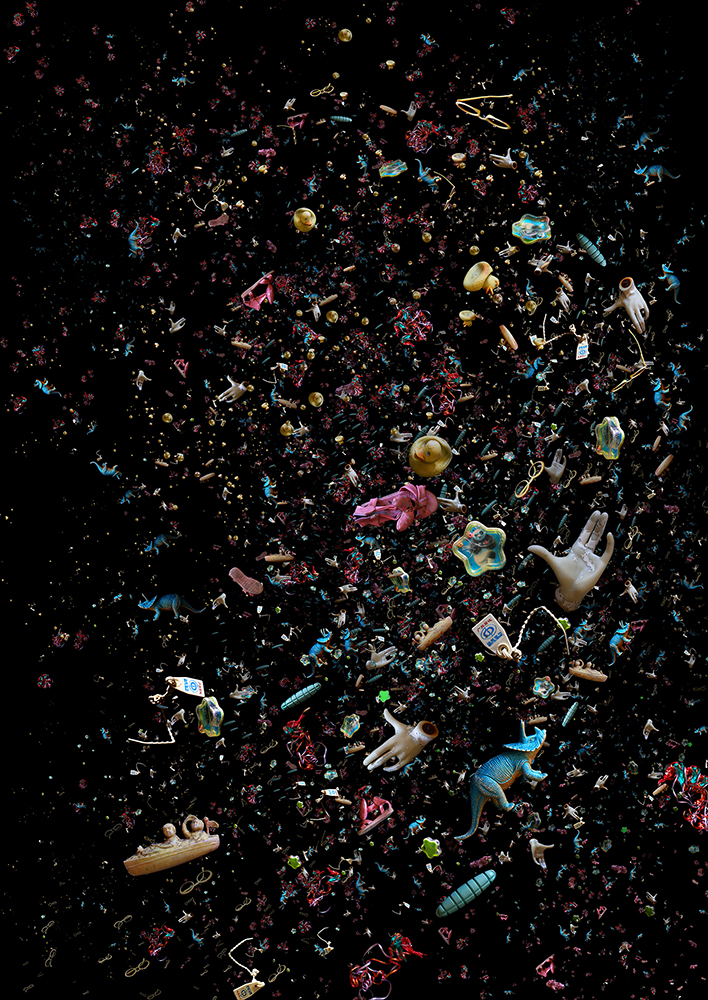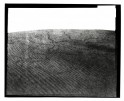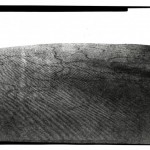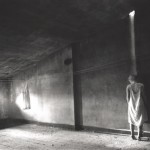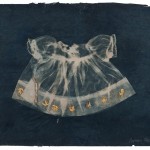Earth Week: Mandy Barker: Hong Kong Soup: 1826
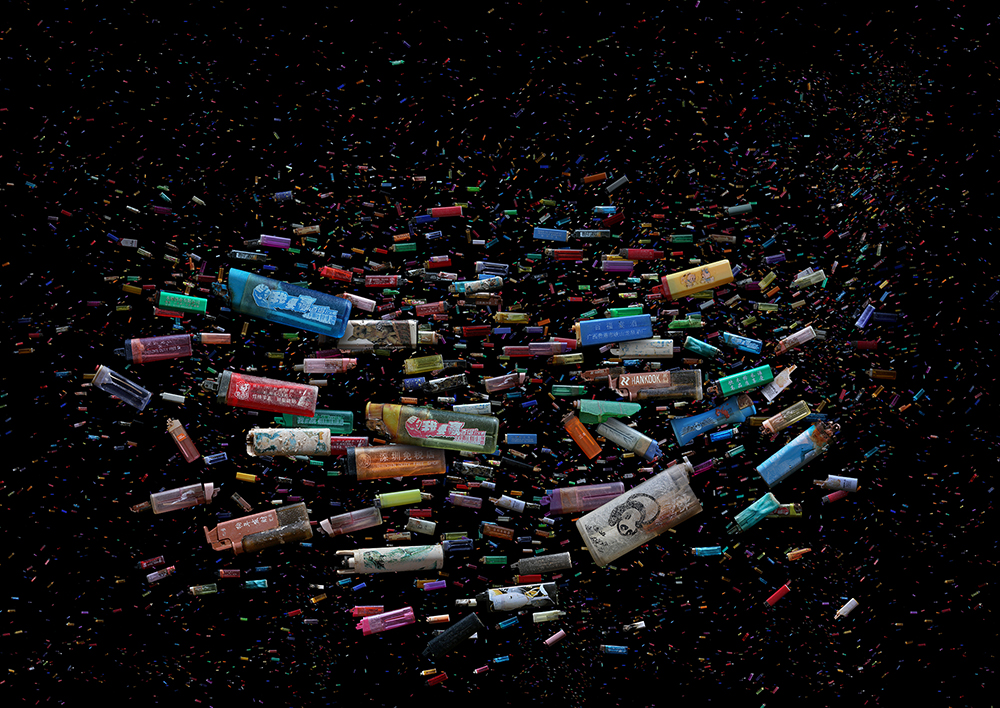
Photograph ©Mandy Barker, Discarded cigarette lighters make reference to our single-use throw away society. The panda, a national emblem of China represents endangered species and faces away from the group symbolising mother nature turning its back on man’s inability to take ownership of its waste.
This week we are featuring bodies of work are linked by this thematic lens: making the often-invisible nature of the global climate and the ecological crisis more visible using conceptual, lens-based art techniques. Each body of work speaks to a different aspect of the climate and ecological crisis: sea level rise; coral bleaching; habitat loss and environmental destruction; deforestation; melting glaciers; plastic pollution.
Mandy Barker is an international award-winning photographer whose work involving marine plastic debris over the past 12 years has received global recognition. Working with scientists she aims to raise awareness about plastic pollution in the world’s oceans whilst highlighting the harmful effect on marine life and ultimately ourselves.
Barker’s work has been published in over 50 countries and exhibited world-wide from MoMA Museum of Modern Art and the UN headquarters in New York, to the Victoria & Albert Museum in London. Barker takes part in key expeditions alongside scientists, to some of the most remote places on earth, to represent the scale of the marine plastic problem with the intention of leading the viewer to take action.
Follow Mandy Barker on Instagram: @mandybarkerphotography
and on Twitter: @plasticpieces
Video by Shirley Ying Han
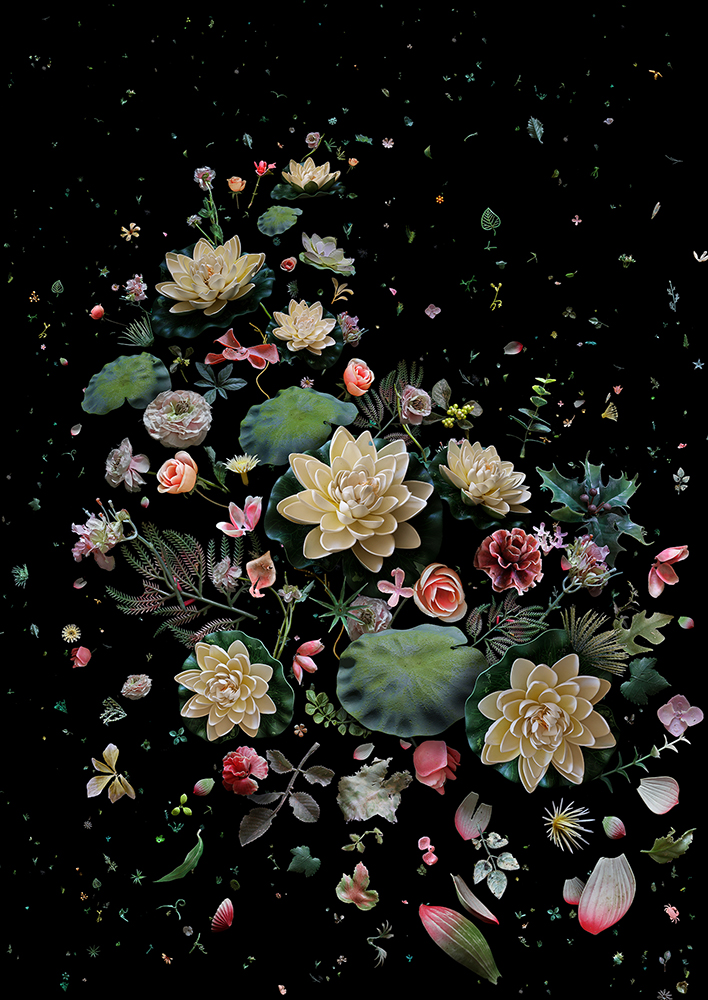
Photograph ©Mandy Barker, A collection of different species of discarded artificial flowers that would not exist at the same time in nature should not be found in the ocean. The flowers were recovered from various beaches in Hong Kong over three years.
‘Hong Kong Soup:1826’
‘Hong Kong Soup:1826’ is a series depicting waste plastic collected from over 30 different beaches in Hong Kong since 2012. Over 1,826 tonnes of municipal plastic waste goes into landfills EVERY DAY in Hong Kong, and each image reflects the diverse range of these products by highlighting recovered objects or groups that have escaped recycling or landfill. The images directly relate to the traditions, events, nature, and culture of Hong Kong, with the intention of connecting with its people to provide awareness about the crisis facing effective waste management. Objects include products from manufacturing, retail, household and hazardous waste alongside agricultural, medical and fishing related debris. 湯 (SOUP) is a description given to plastic debris suspended in the sea, in this case with a direct reference to the waste crisis in Hong Kong. The series aims to engage with the public by stimulating an emotional response, combining a contradiction between initial aesthetic attraction with an awareness to encourage social responsibility. All waste in this series has been collected over the past three years. It was photographed in both Hong Kong and the UK, representing a wide-ranging collection of debris that has existed for varying amounts of time on Hong Kong’s own doorstep.
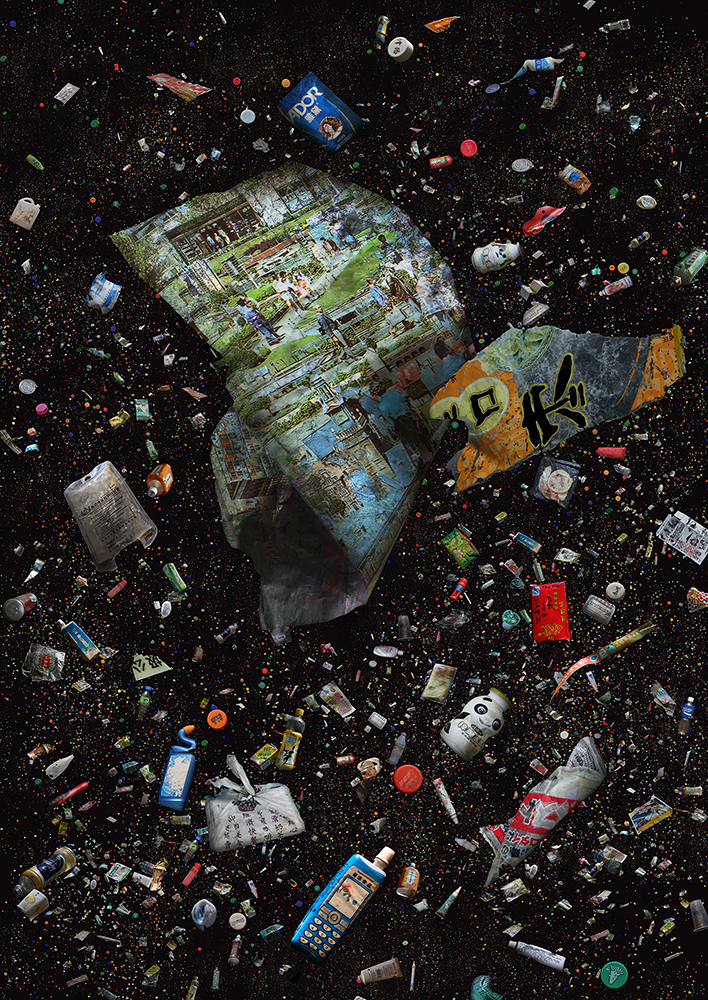
Photograph ©Mandy Barker, Waste plastic packaging from single-use food and drink items, with household products alongside medical and hazardous waste.
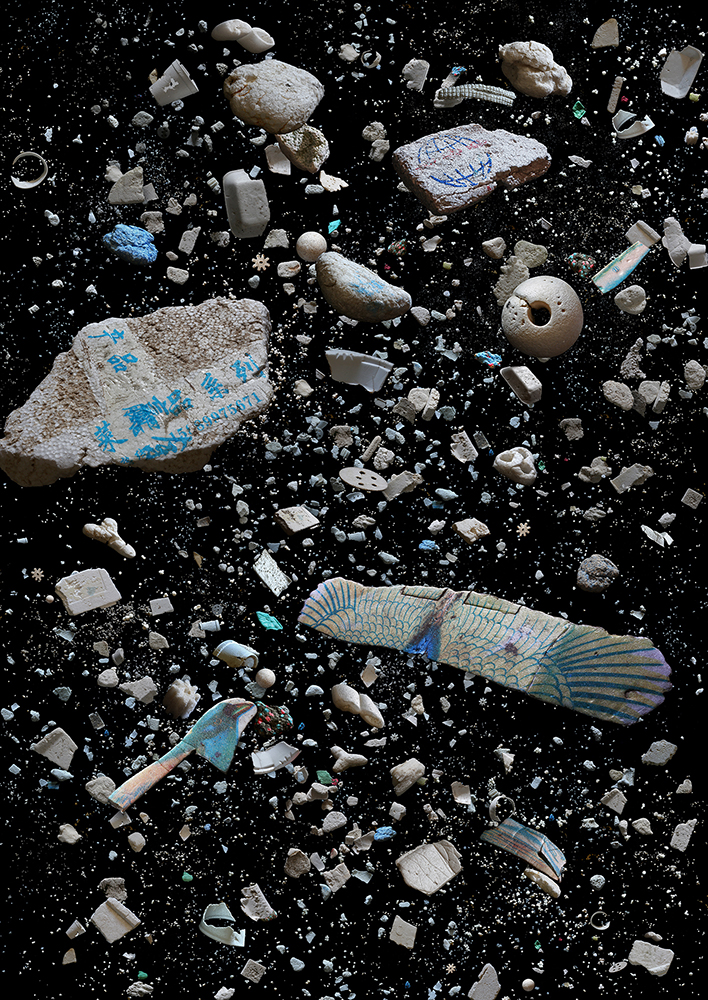
Photograph ©Mandy Barker, Representing 52 tonnes of polystyrene foam dining ware that goes into landfill EVERY DAY in Hong Kong. Foam pieces of varying sizes litter every beach and shoreline in Hong Kong.
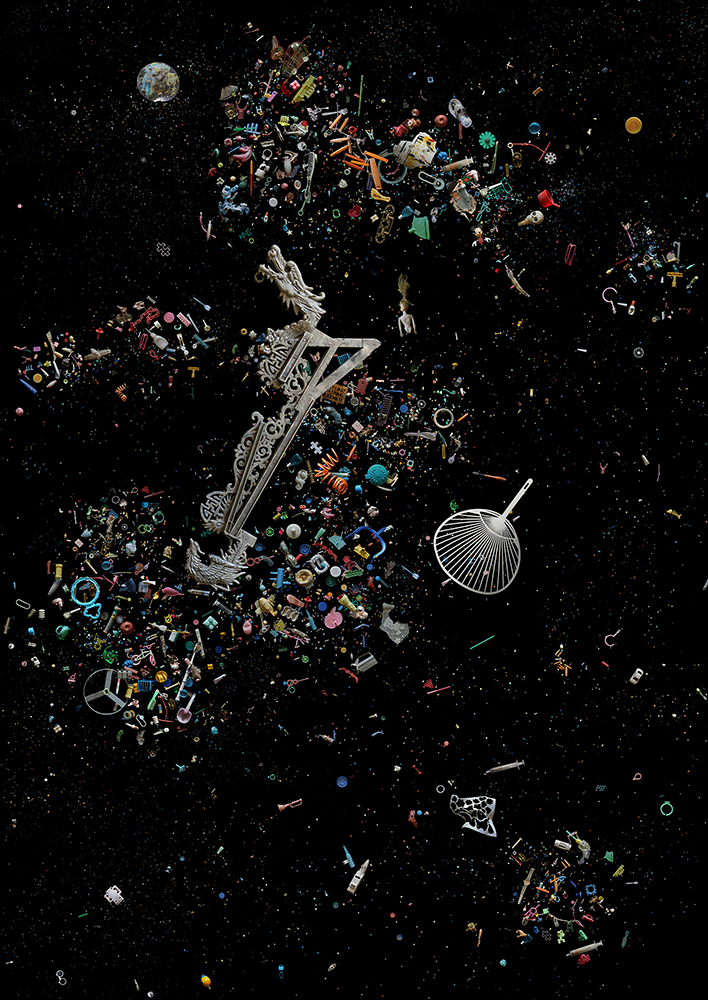
Photograph ©Mandy Barker, Marine plastic debris recovered from the Soko Islands represents the contours of the beaches and islands where the waste was collected. Debris recovered from the Soko islands over the past year.
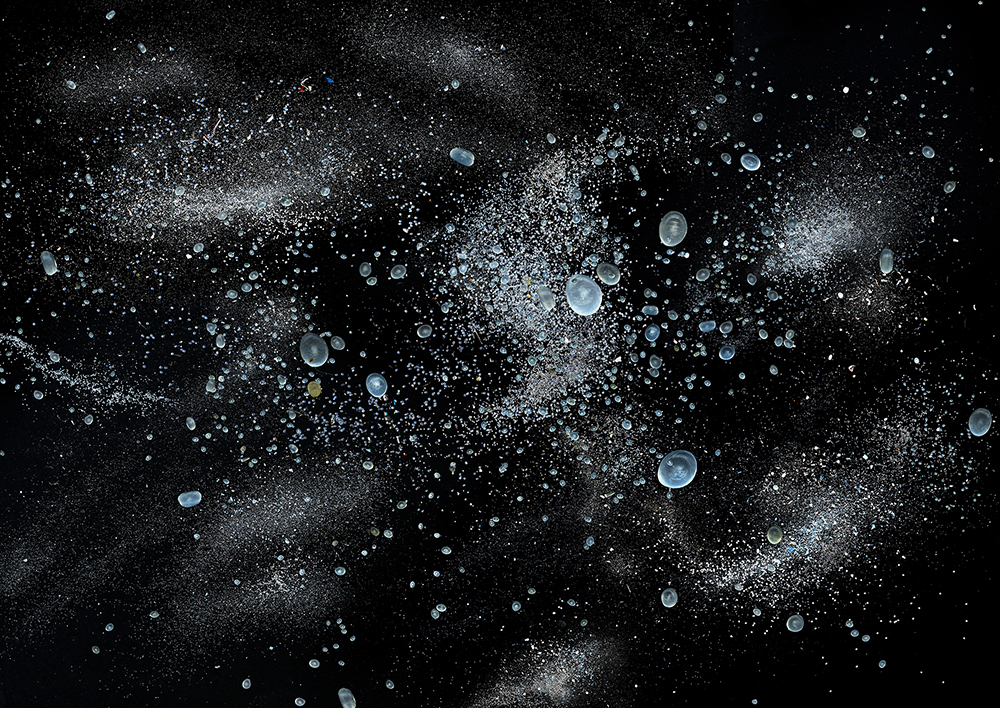
Photograph ©Mandy Barker, 150 tonnes of pre-production plastic pellets (nurdles) spilt from a cargo container during Typhoon Vincente on 23rd July 2012 adds to Hong Kong’s waste issues in its seas and on its beaches.
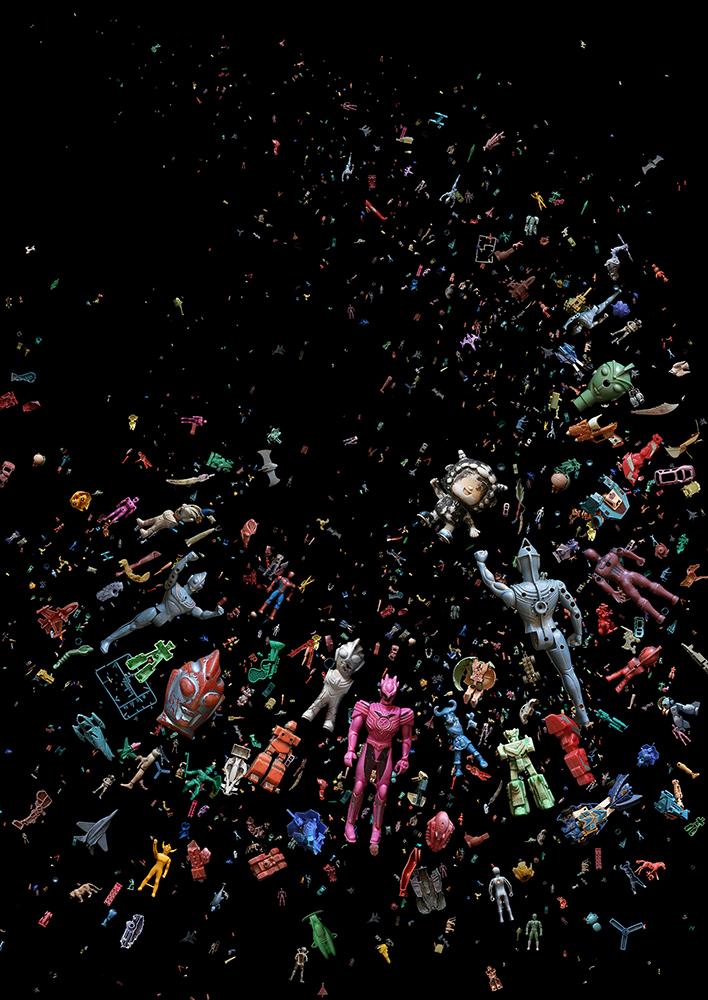
Photograph ©Mandy Barker, Recovered toys, action heroes and transformers reflect inadequate disposal of children’s toys – the message being to TRANSFORM the habits and behaviour of the younger generation in Hong Kong.
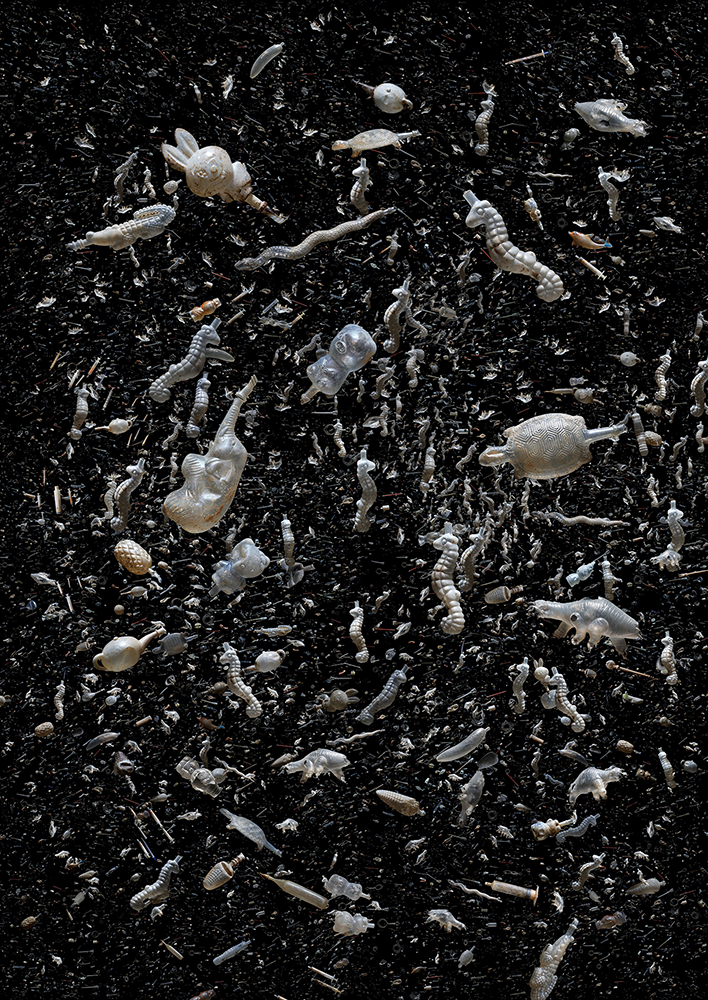
Photograph ©Mandy Barker, Plastic ice-lolly wrappers with syringes collected from single visits to three different beaches on Hong Kong Island.
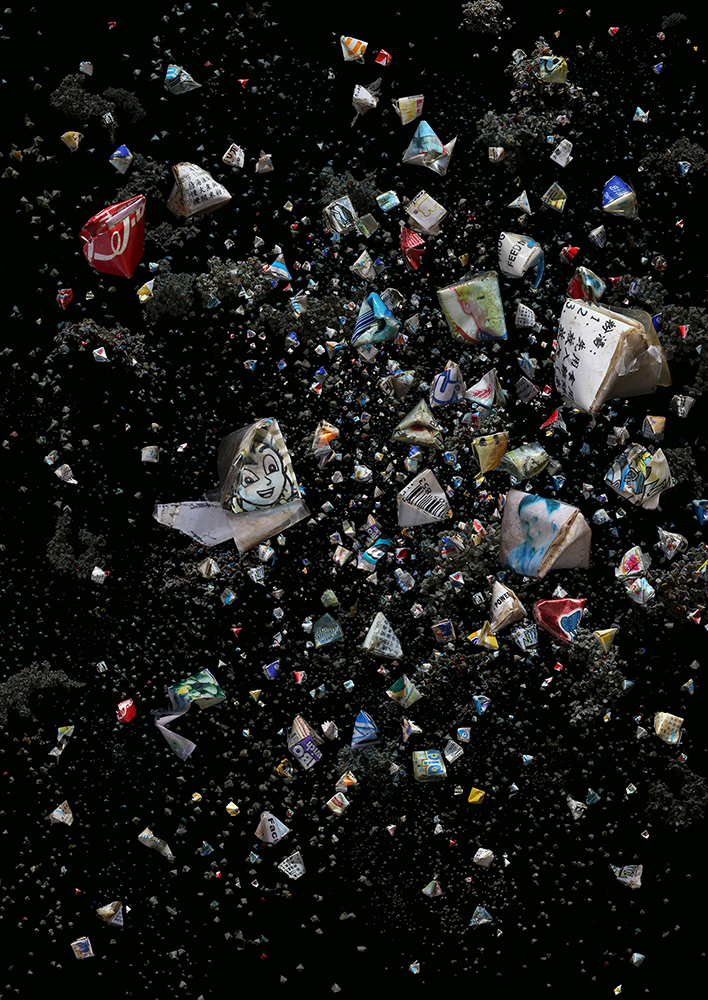
Photograph ©Mandy Barker, Miniature plastic waste imitation sticky rice packages found in the sea. Zongzi or zong are traditionally made from bamboo leaves and thrown into the sea as part of the dragon boat festival in Hong Kong.
Michael O. Snyder is a photographer and filmmaker who uses his combined knowledge of visual storytelling and conservation to create narratives that drive social impact. Through his production company, Interdependent Pictures, he has directed films in the Arctic, the Amazon, the Himalaya, and East Africa. His photojournalism work has been featured by outlets such as National Geographic, The Guardian, and The Washington Post. He is a Portrait of Humanity Award Winner, a Society of Environmental Journalists Member, a Pulitzer Center Grantee, and a recent delegate to the United National Climate Conference. He holds an MSc in Environmental Sustainability from the University of Edinburgh, Scotland and a BSc from Dickinson College, Pennsylvania. He lives in the shadow of the Blue Ridge Mountains of Central Virginia.
Follow Michael O. Snyder on Instagram: @michaelosnyder
Posts on Lenscratch may not be reproduced without the permission of the Lenscratch staff and the photographer.
Recommended
-
Jonathan Silbert: InsightsFebruary 19th, 2026
-
Olga Fried: Intangible EncountersFebruary 18th, 2026
-
Anne McDonald: Self-PortraitsFebruary 17th, 2026
-
Review Santa Fe: Leslee Broersma: Tracing AcademiaFebruary 11th, 2026
-
Review Santa Fe: Ilana Grollman: Just Know That I Love YouFebruary 10th, 2026

